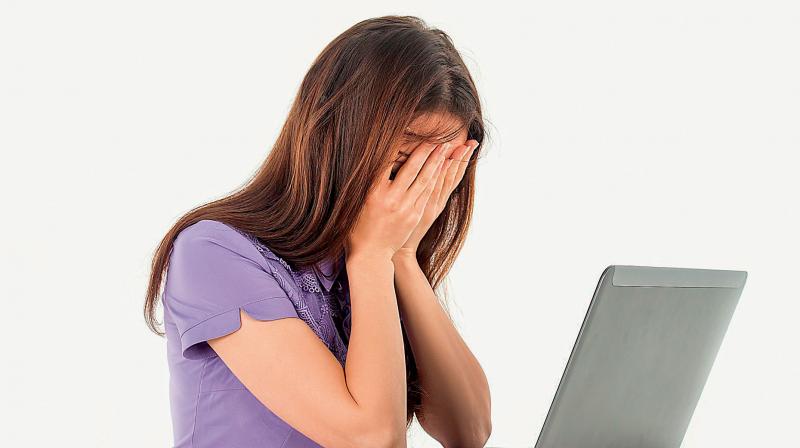Good social media experiences on mental health don't outweigh bad ones for youth
Social media lends itself to negativity bias because it is saturated with positive experiences that leave people jaded.

For young adults, the adverse effect of negative social media experiences on mental health outweigh any potential benefits of positive experiences, a study of university students suggests.
Each 10 percent increase in a student’s negative experiences on social media was associated with a 20 percent increase in the odds of depressive symptoms, researchers found.
But positive experiences on social media were only weakly linked to lower depressive symptoms. Each 10 percent increase in positive social media interaction was associated with only a four percent drop in depressive symptoms - a difference so small that it might have been due to chance.
“This is not inconsistent with the way we see things in the offline world . . . The negative things we encounter in the world count more than positive ones,” said study leader Brian A. Primack, director of the Center for Research on Media, Technology and Health at the University of Pittsburgh in Pennsylvania.
“If you have four different classes in college, the fourth class that you did poorly in probably took up all your mental energy,” he told Reuters Health by phone.
Primack said he believes social media lends itself to negativity bias because it is saturated with positive experiences that leave people jaded.
As reported in the journal Depression and Anxiety, Primack and colleagues surveyed 1,179 undergraduate and graduate students, ages 18 to 30, at the University of West Virginia in August 2016. They asked students to estimate what percentage of their social media interactions were positive or negative. They also assessed students’ depressive symptoms using a four- item standardized questionnaire called the Patient -Reported Outcomes Measurement Information System (PROMIS) scale. Participants were asked how frequently in the past seven days they had felt hopeless, worthless, helpless or depressed.
Sixty-two percent of participants were female. The majority were white. About half were single, and about half were at least 20 years old.
This is not the first time researchers have tried to gauge the effects of social media. According to a study published online last month by the Pew Research Center, teens have mixed views on the impact of social media on people their age. Thirty-one percent of teens said social media's impact is mostly positive impact, 24 percent described it as mostly negative, and 45 percent felt social media have neither positive nor negative effects.
Aaron Smith, associate director of research on internet and technology issues at Pew Research Center in Washington, DC and a coauthor of that study, told Reuters Health that teens who reported a negative impact of social media were troubled by bullying and rumors, among other things.
Among the limitations of the study by Primack’s team is that the subjects aren’t representative of a broad swath of the public, so the results cannot be generalized to a more diverse population. Also, the authors acknowledge, participants may have under-reported their depression. Furthermore, the researchers did not have enough information to disentangle cause and effect.
Michael Schoenbaum, senior advisor for mental health services, epidemiology and economics at the National Institute of Mental Health, told Reuters Health in a phone interview that he found the new study “deeply frustrating.”
“There are lots of important questions about the role of social media in our psychological lives and, in particular, how the effect that social media might have on people with psychological distress or on people who are vulnerable to psychological distress . . . and I don’t think this study answer all of these questions,” he said.
Schoenbaum added, “One cognitive error in social media is to imagine if you turn it off your social life is over . . . As a researcher, but also as a parent, I definitely think turning it off needs to be an option.”

